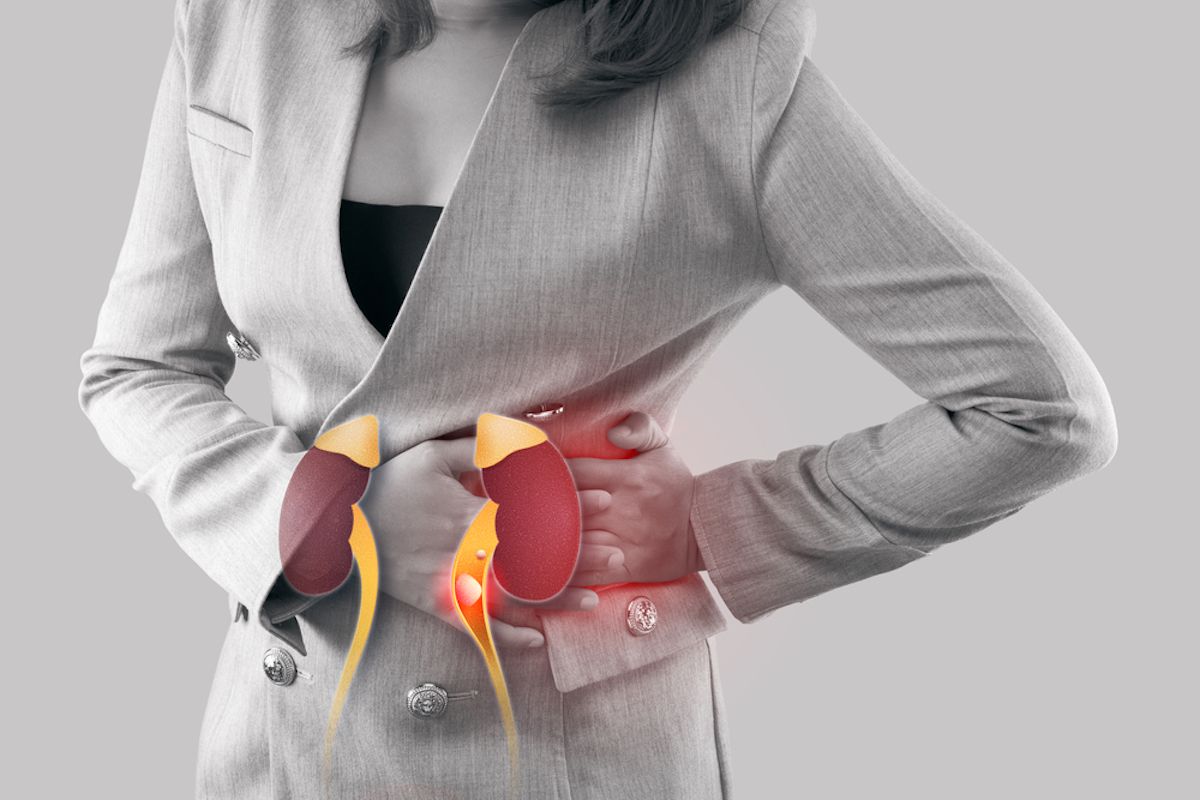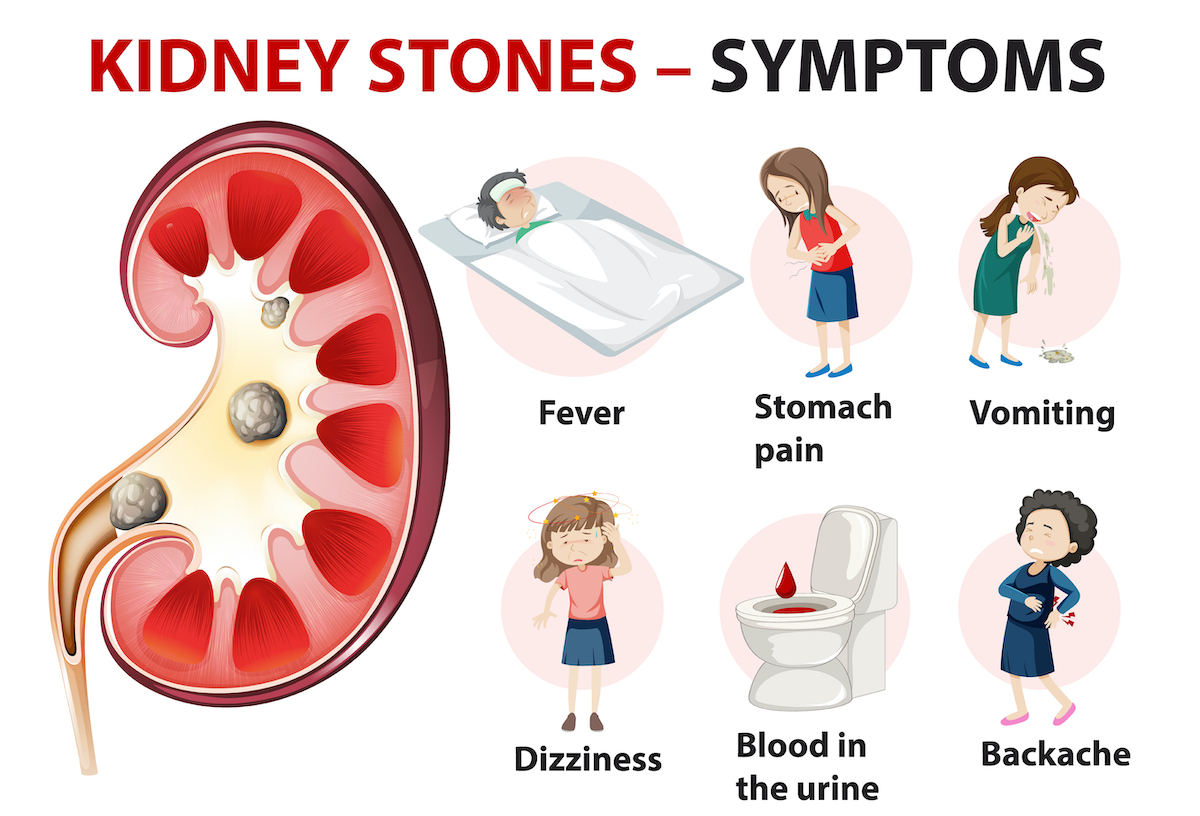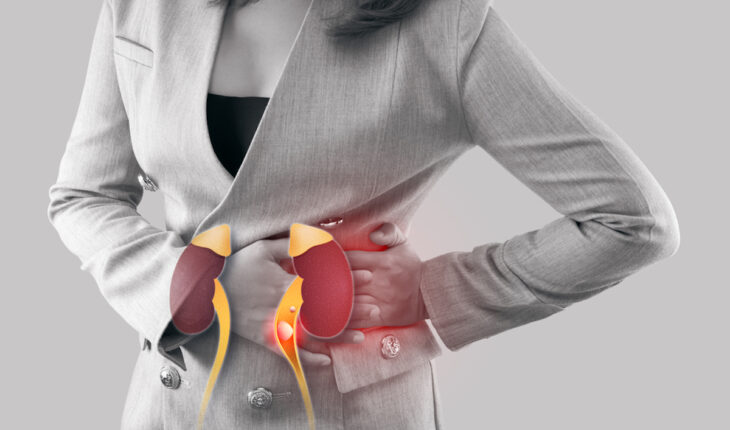Kidney stones, you might have heard of the condition from someone who had them and know they can be pretty painful. Fortunately, that is the only thing, and it cannot cause serious damage to your kidneys or other important components in the urinary tract system – if caught timely! This is a good thing because kidney stones are quite common in the United States. Approximately, 1 in 10 people will suffer from kidney stones at least once in their life. Make sure you know how to recognize kidney stones and what to do if you suffer from them.

What Are Kidney Stones?
Urine contains various dissolved wastes, like salts and minerals in it. When there is too much waste in too little urine, these wastes will begin to stick together and crystallize. These crystals are called kidney stones – also known as renal calculi, nephrolithiasis, or urolithiasis. These stones vary in size. Some are as little as peas and others can be as big as a golf ball. You can imagine that a stone the size of a pea will not bother you as much as a stone the size of a golf ball. Especially when you also know that they have to leave the body through the (narrow) urethra.
Causes & Risk Factors
Kidney stones are divided into 4 types, and it is important to know how they are caused. The types are:
- Calcium stones; are caused by too much oxalate in your urine.
- Struvite stones; are caused by a urinary tract infection (UTI)
- Uric acid stones; are caused by losing too much fluid or a high-protein diet
- Cystine stones; are caused by the hereditary disorder cystinuria. Which causes the kidneys to discharge too much of a particular amino acid.
Researchers do know how kidney stones form – too many crystal-forming wastes in the urine or a lack of substances in the urine that prevents the wasted to crystallize – but why someone gets kidney stones is still unknown. However, there are a few factors that increase the risk of getting them. Risk factors include genetics, dehydration, high protein or high sodium diets, medical conditions like digestive diseases, obesity, diabetes, high blood pressure & hyperparathyroidism, and the use of certain medications that treat migraines or depression.
You can also have kidney stones without being bothered by them. They are then very small and chances are that you urinate them out without even feeling or hearing anything. Except for the little stone falling into the toilet bowl. It is always a good idea to contact your professional healthcare provider in that case, make sure to collect the kidney stone(s), in case he/she wants you to visit, so they can examine what causes these stones.

How to recognize Kidney Stones
People who have already suffered from (large) kidney stones often talk mostly about the pain, but there are more ways to know you’re suffering from kidney stones. This means your kidney is moving around in your urinary tract, which hopefully means it’s on its way to the urethra to – if possible – be urinated out. Other symptoms include:
- Pink, red or brown urine
- Pain while urinating
- Cloudy or foul-smelling urine
- Having to urinate more frequently
- Nausea & vomiting
- Fever
If a kidney stone blocks the flow of urine in the ureters, it causes the kidney to swell and the ureter to spasm, which can be very painful. Someone may experience the following pain symptoms. It’s often described as a severe and sharp pain in the side & back (below the ribs). This pain radiates to the lower abdomen and/or groin and fluctuates in severity.
Treatment Options & When to See a Doctor
Often your professional healthcare provider will tell you, you have to drink a lot of water. This will help you pass the kidney stones. If this doesn’t work he or she will also prescribe medication that makes your urine less acid. If the kidney stone(s) cannot pass, block the flow of urine, or your healthcare provider suspects there is an infection, the stone will have to be surgically removed. Also, contact your professional healthcare provider if there is blood in the urine and/or you are in so much pain that you don’t know how to sit, stand, lie down, etc.
It’s important to do a lot of research on this condition. You can do this by talking to your professional healthcare provider, as well as through online research. We want to help you along, so start your search here:

